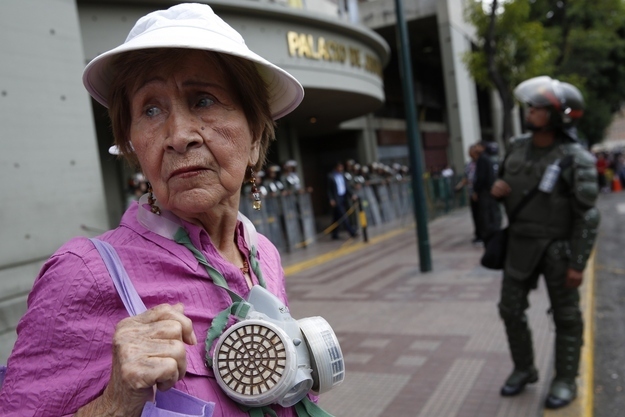While Ukraine has been getting most of the attention, huge anti-government protests in Venezuela have led to dozens of injuries, hundreds detained, and a confirmed five deaths.
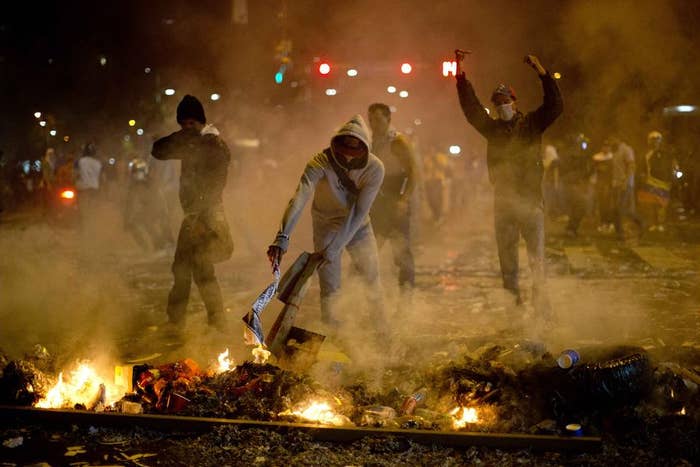
Much of the unrest can be traced to Hugo Chavez nationalizing the oil industry in 2006. Rising oil prices since 2000 buoyed his regime, but declining production and oil prices led to a host of problems.
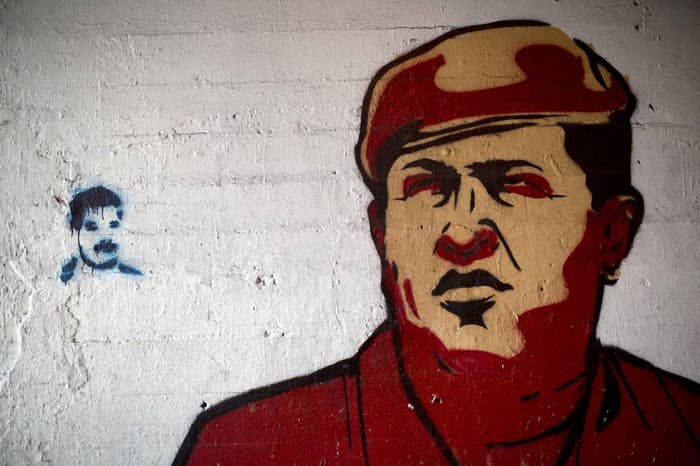
Chief among them was inflation, which reached 56.2% in 2013 and is expected to reach 60% this year, according to CNN. Inflation has led to food shortages and Venezuela has been beset with skyrocketing crime.
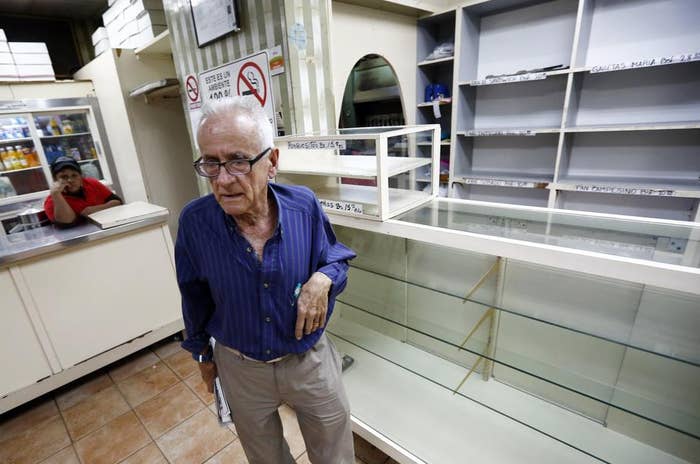
According to Venezuelan violence watch, 24,700 people were murdered in 2013 — that's one every 21 minutes.
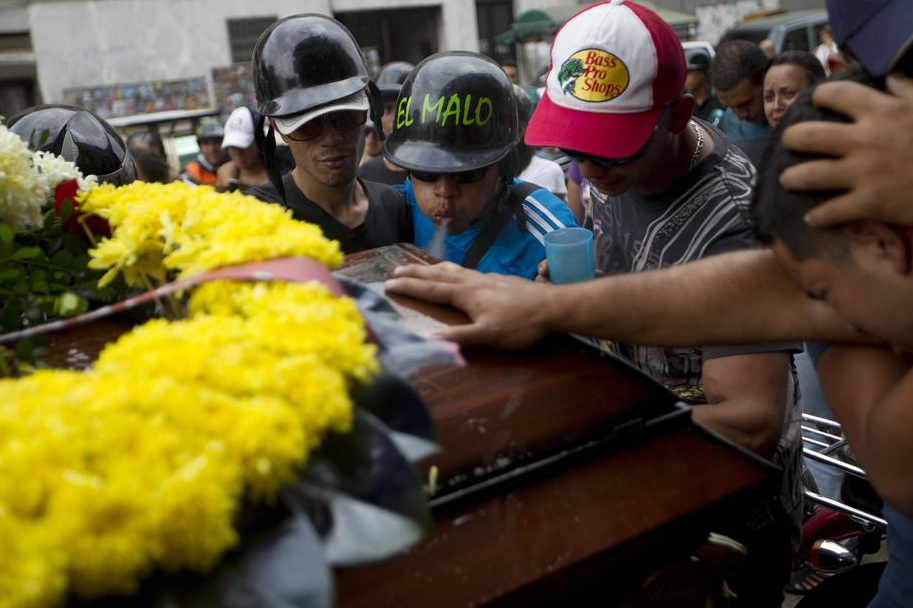
So on Feb. 12, the food shortages and crime wave led students to protest on national Youth Day.
The Gov prohibited it, their friends were killed..it didn't matter. Students still protested in #Venezuela today
Three were killed and countless were injured in clashes with police. Fusion correspondent Mariana Atencio is in Venezuela and told BuzzFeed the anger can be traced back to a Henrique Capriles' loss by 1% to current President Nicolas Maduro.
Los estudiantes del tachira en la calle @leopoldolopez
The former candidate for president and current governor of Miranda, Capriles urged his supporters not to take to the streets after last year's election. "He said we're not going to fight these results, there's going to be violence," Atencio said.
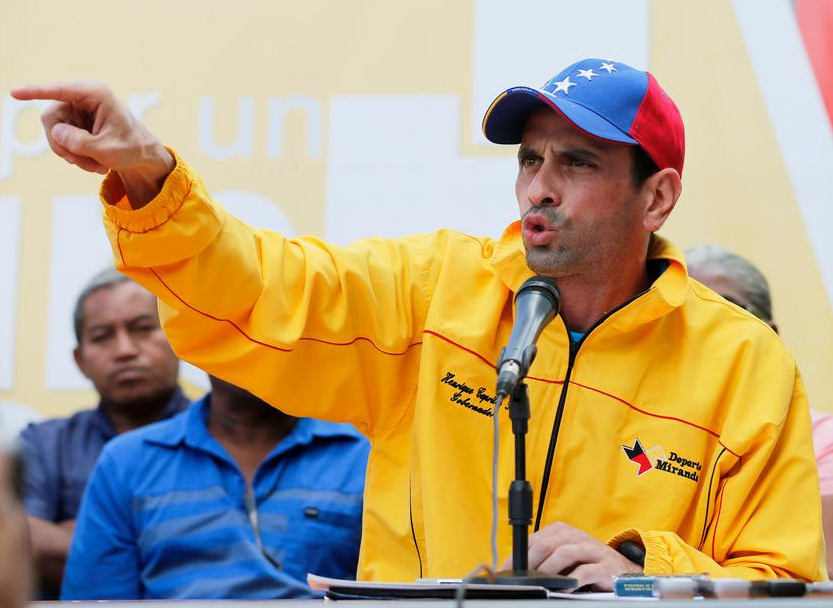
Two other opposition leaders were less measured than Capriles. Leopoldo Lopez and María Corina Machado called people to the streets after the new year.
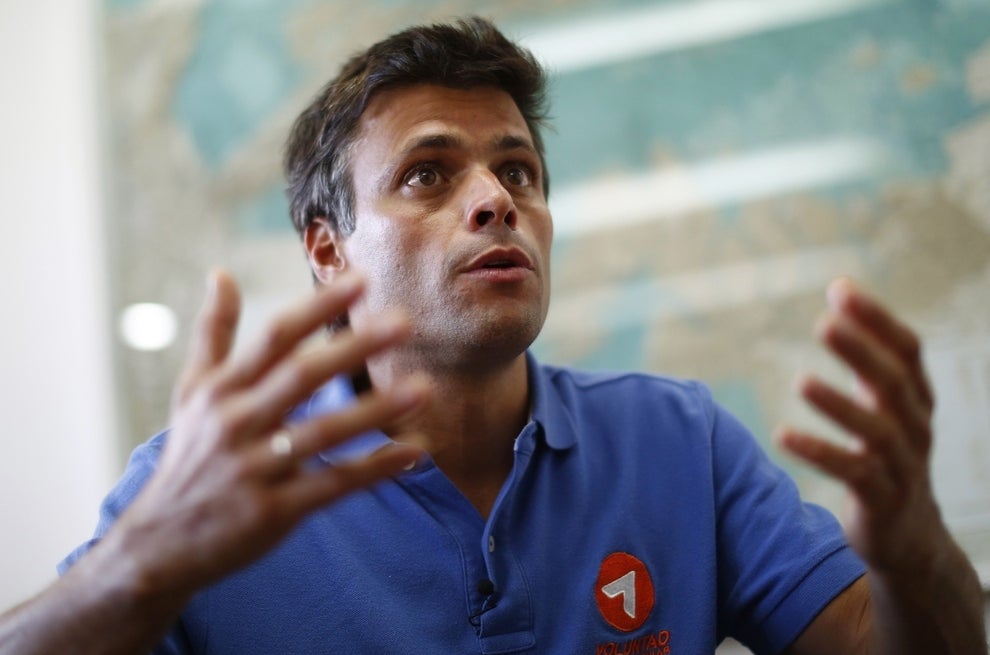
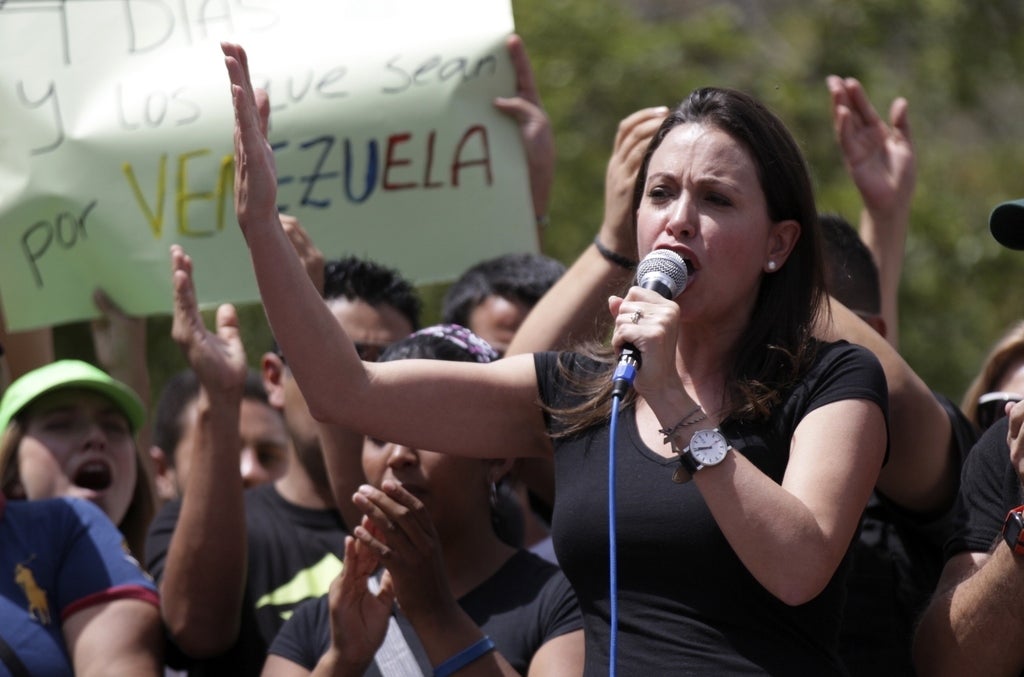
"They called it Maduro's salida; he has to leave by any means possible," Atencio said.
Beauty queen Genesis Carmona was one of the fatalities at the protests. She was shot in the head.


On Feb. 16, Maduro expelled three American diplomats from the country, accusing them of supporting the student protests. "We are determined to defend our country," he said on state television Sunday night.
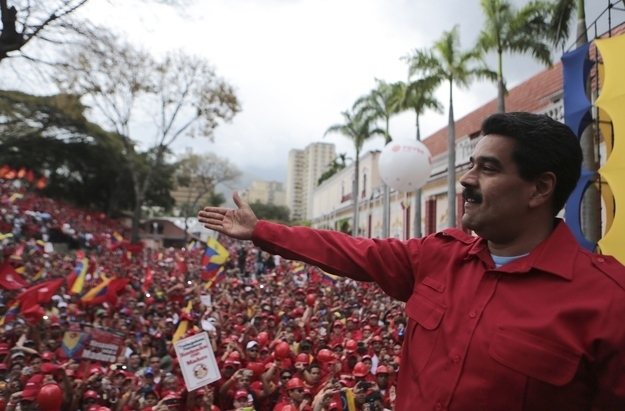
The U.S. denied involvement, but not all Americans have been silent. Andreina Nash, a University of Florida student, created a video with over 2 million views on what is happening in Venezuela.
View this video on YouTube
Lopez, in particular, captured the imagination of protesters. The 42-year-old Harvard-educated economist used social media to get out his message, like many others in the opposition.
"I tell you Maduro, you're a coward. Nor to my family or me are you going to force us to yield. To my family: strength, I love you."
Te lo digo Maduro, eres un cobarde. Ni a mi familia ni a mi nos vas a doblegar. A mi famila: fuerza, los amo.
After being accused by the government of being the mastermind behind protests, violence, and damages, Lopez made a video calling people to the streets again. He said he would show up and give himself to police.
View this video on YouTube
His wife posted moving images of his actions on Wednesday as she said goodbye. Lopez was charged with murder, terrorism, arson, and conspiracy. Murder and terrorism charges were dropped Thursday but he still faces 10 years in jail.
This was the crowd.
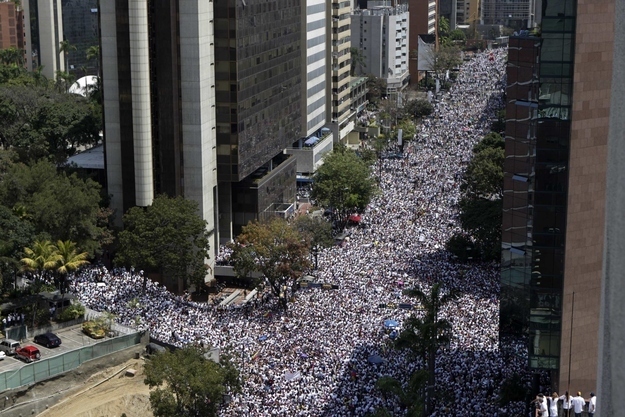
The National Guard put him in an armored vehicle.
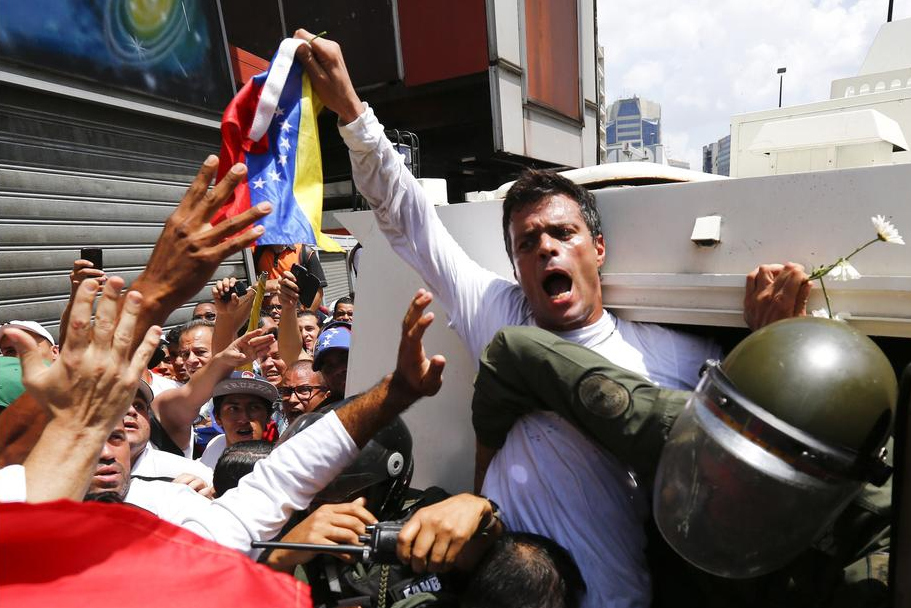
There were also reports of media being silenced and intimidated by the government or affiliated militias. A CNN International crew was robbed at gunpoint.
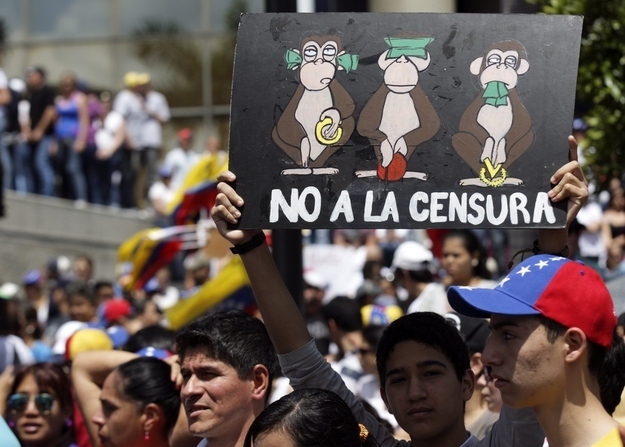
Colombian @NTN24 only outlet reporting out of #Venezuela was taken off cable, it's web page hacked #censorship
Thursday, Maduro threatened to take CNN en Español off air.
#Venezuela's President @NicolasMaduro threatens to take @CNNEE off the air for what he called "war propaganda". http://t.co/s00PnH4oyN
Social media was affected. Photos were blocked on Twitter in Venezuela.
@conz completamente cierto...
Still others blame both sides or take issue with the tactics of the opposition. Bolivia, Ecuador, and Argentina released statements strongly supporting the government.
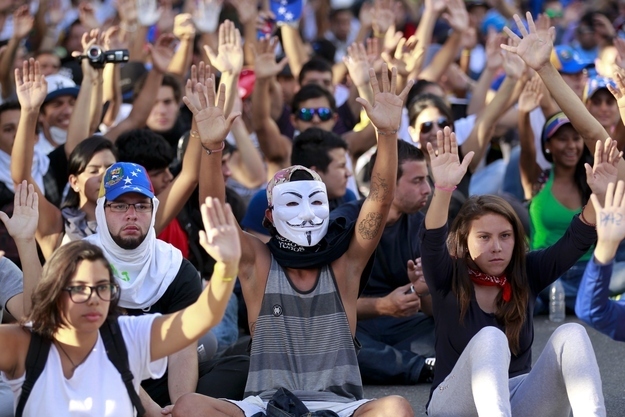
Some accused the U.S. of meddling with Venezuela's internal affairs. The Council on Hemispheric Affairs, (COHA), blamed U.S. policy toward Venezuela for the unrest.
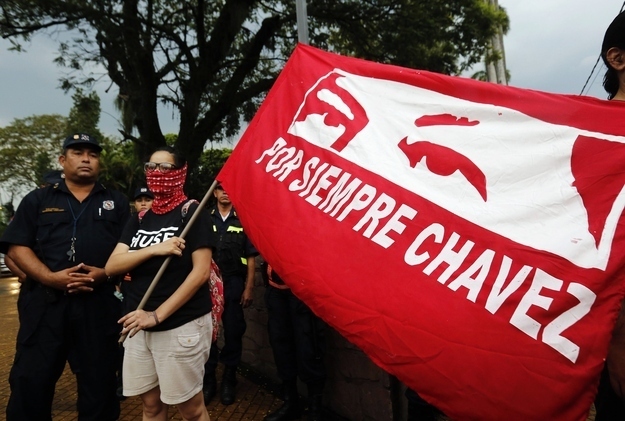
Al Jazeera America reported that Venezuelans are divided on the streets and on Twitter, with dueling rallies and Twitter hashtags.
Well-known singer Ruben Blades wrote an emotional plea, blaming both sides, saying neither is acting out the direct will of the people. Atencio said there is truth to this.
Rubén Blades: Hoy Venezuela duele http://t.co/9GXAkKS0zq
She said a big chunk of the population is with neither side but the students have wide support.
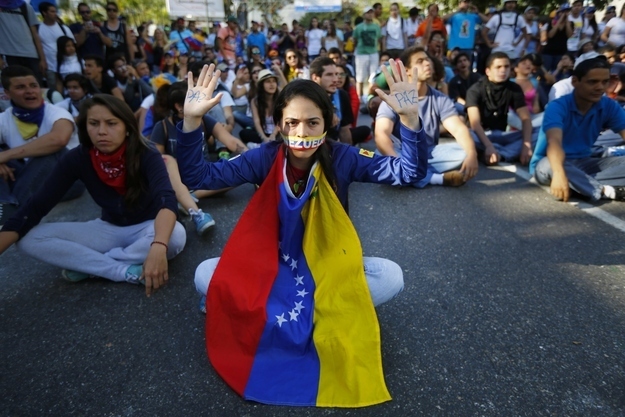
"They haven’t been politicized," she said. "They're not entirely associated with the opposition. People romanticize these students because they're a-political so to speak. They just want food on the table and want crime to stop."
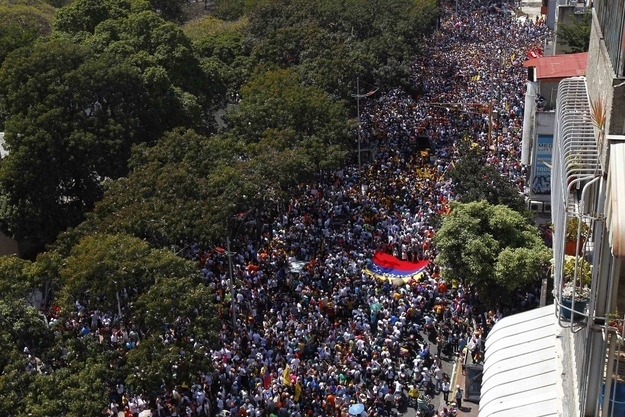
Fabiana Papaianni, who has worked for Capriles in Venezuela since 2012, has been working with Miguel Pizarro, a member of the national assembly to identify and help free students who have been detained.
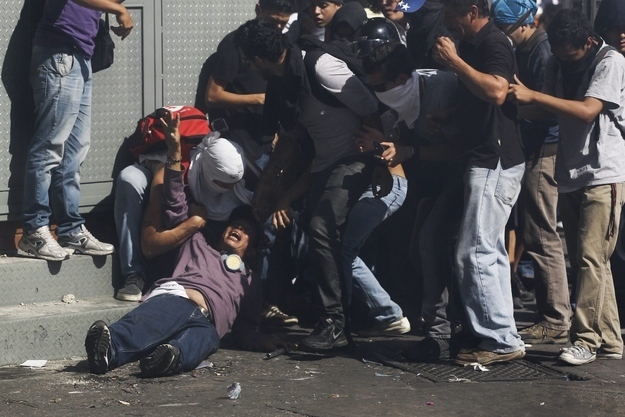
She told BuzzFeed that 422 people have been detained as of Thursday night. "Only 14 have been sentenced and are under arrest (6 under home arrest), 192 have been let go ... and 216 have been detained in the past few days," and are awaiting arraignment.
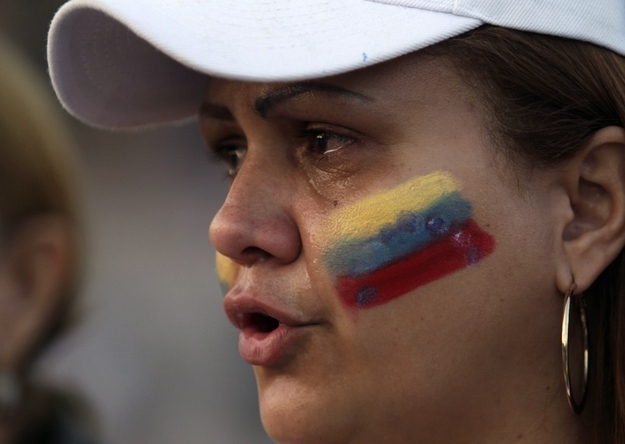
"As for the country, it is divided," Papaianni said. "We all have the same very serious problems, but I guess we differ on who we blame."
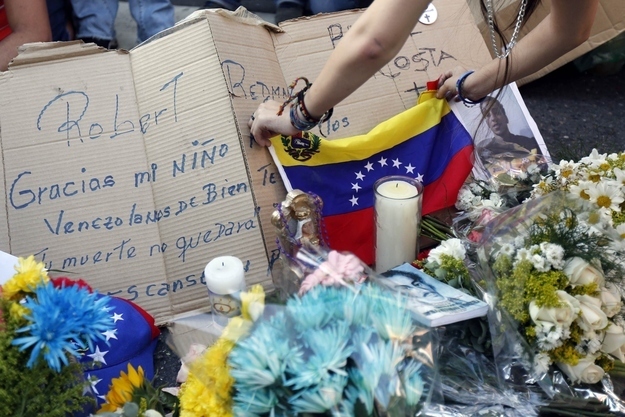
So where do things go from here? Atencio says a Saturday rally is planned, though some opposition members are afraid to go for fear of violence from the government. "People are getting tired," she said. "It depends how many people show up."
